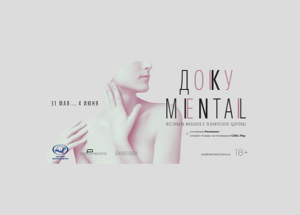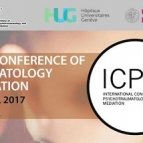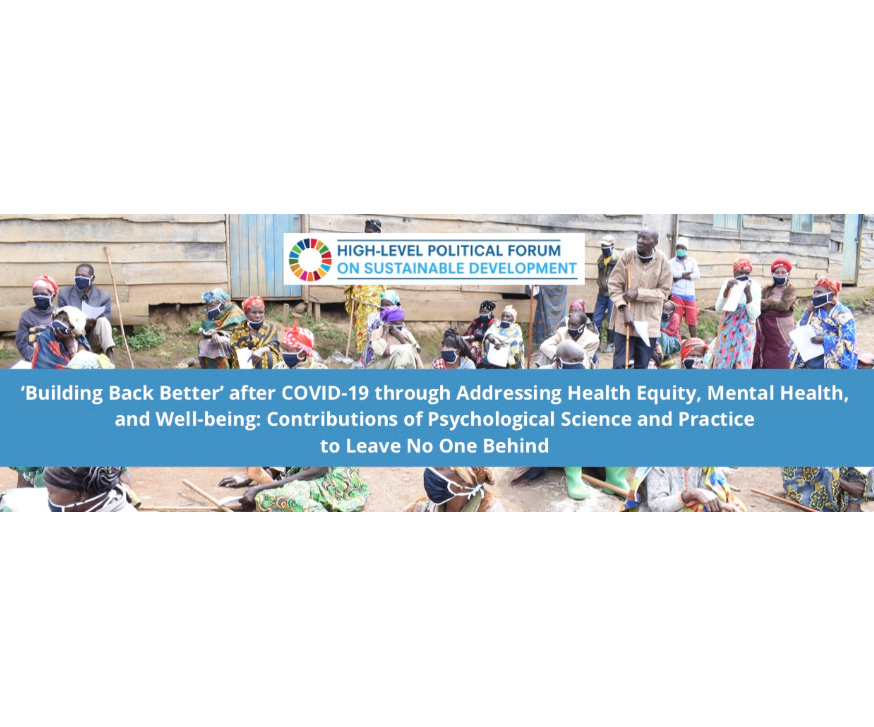DECLARATION: CHILDREN, SOCIETY, AND FUTURE The III Congress on Mental Health: Meeting the Needs of the XXI Century
PREAMBLE and Guiding Principles
The III Congress on Mental Health: Meeting the Needs of the XXI Century (hereinafter referred to as “Congress”) was held online on 8-9 October 2021, from headquarters of the Union for Mental Health, in Moscow on the topic of Children, Society and the Future.
The Congress, under the patronage of the Ministries of the Russian Federation of Education, Health, Sports and Social Policy, and organized and supported by Russian and international professional organizations[i], brought together representatives from 37 countries for a total of 10,000 attendees. Attendees included leaders, specialists, and members of organizations in diverse fields, including from government, non-profit organizations, media, and private sector enterprises, in diverse fields as the healthcare system, social protection, science, education, culture and the arts, physical culture and sports, rehabilitation, economics, labor, and law.
The declaration draft was agreed upon by the Russian and international organizing committees[ii], and accepted by the attendees at the closing ceremony.
The Congress aimed to preserve and enhance the mental health and well-being of children and adolescents, necessary for the healthy development of families, communities, and societies, and the future of human civilization, through discussions about medical and non-medical content, challenges, and methodologies, with interdisciplinary, multi-sectoral and multi-stakeholder exchange, contribution, and cooperation.
This aim is consistent with the major United Nations international agreement, namely, the UN Agenda 2030 for Sustainable Development, adopted in 2015 by the 193-member countries of the United Nations, which acknowledges the importance of promoting mental health and wellbeing, as affirmed in target 3.4 and in the preamble. Children are referred to nineteen times in the various goals, including about ending poverty and hunger, ensuring healthy lives and quality education, reducing inequality, and promoting peace.
The aims of this Congress are further aligned with other major internationally-agreed-upon instruments, including, but not limited to, those by the World Health Organization (WHO), specifically, the WHO Comprehensive Mental Health Action Plan for 2013–2020 (extended to the year 2030) and the WHO Human Rights Campaign; as well as numerous other UN documents including the Resolution on Universal Health Coverage; the United Nations Human Rights Council Resolution on Mental Health and Human Rights; the UN Standard Minimum Rules for the Administration of Juvenile Justice; the Global Compact for Safe, Orderly and Regular Migration; and the Sendai Framework for Disaster Risk Reduction 2015¬2030, as well as agreements deriving from conventions including the Convention on the Rights of the Child; the Global Strategy for Women’s, Children’s and Adolescents’ Health (2016–2030); the Convention on the Elimination of All Forms of Discrimination against Women; the Political Declaration of the Third High-Level Meeting of the General Assembly on the prevention and control of noncommunicable diseases; and the Convention on the Rights of Persons with Disabilities, calling for elimination of all forms of discrimination, stigma, violence and abuses in the context of child and adolescent mental health and for provision of access to people-centered services.
Attendees at this Congress discussed critical issues in child and adolescent mental health and well-being with regard to nine areas: (1) early diagnosis and prevention of mental disorders; (2) treatment and psychosocial rehabilitation; (3) professional training of medical and non-medical child and adolescent specialists; (4) mental health conditions of gifted children; (5) mental health conditions of vulnerable child populations; (6) the impact of physical culture and sports; (7) the impact of culture and art; (8) educational environments affecting child and adolescent mental health; and (9) legal frameworks. All these took into account and respected all service providers, service users, and other stakeholders, as well as cultural and socio-economic characteristics of diverse regions and settings.
Statistics show the dire mental health needs of young people. About a quarter of the world’s population are children and adolescents under the age of 15 and about 40% are under the age of 25. In this context, according to data from WHO, 10–20% of this population suffer from mental disorders, half of which develops before the age of 14, and three quarters before the age of 20.
Therefore, we make the following observations.
We recognize that these numbers indicate the crucial importance of preventive measures and rehabilitation services at early stages of life, to preserve young people’s mental health, and to develop their holistic capabilities, including emotional, physical, cognitive, spiritual, social, and economic, which, in turn, are critical for the well-being and prosperity of any socio-economic system in modern society.
We acknowledge that the emotional, physical, cognitive, and behavioral development of a child is largely determined by biological and social determinants at various stages of development.
These stages include the early stages of conception and pregnancy, as well as the postnatal period. In fact, the healthy formation of the fetal brain during prenatal development in the first thousand days in-utero is critical for the entire lifespan in order to ensure quality health and well-being, academic and professional success, and harmonious relationships.
In the ensuing phase of early childhood when children become increasingly independent and alter their relations with peers and adults, the degree of their social competence becomes a key characteristic of some mental disorders.
Next, the school age becomes a challenging stage, when healthy psychological growth and risks for mental health are affected by multiple factors, notably, relationships with teachers and peers, as well as the educational environment, including the goals of education, content and methods of instruction, and age-appropriateness of educational materials.
Proceeding, the stage of adolescence is marked by significant mental, somatic and social changes, characterized by puberty and strong dependence on the social environment, which requires considerable adaptation and presents potential crises on many levels which increase the risk of mental illness.
In the context of these developmental stages:
We recognize that political and socio-economic conditions can adversely affect child development. These conditions include poverty, discrimination, marginalization, instability, violence, armed and transnational conflicts, migration, and environmental, natural and technological disasters as well as epidemics, in addition to all difficult life situations. All these conditions are exacerbated by lack of access to adequate, acceptable and affordable services in terms of education, treatment, and prevention, especially for those in low-resources settings.
We acknowledge the value of physical activity, for overall physical health but also for cognitive and mental growth, including self-esteem and quality of life, and also for reducing the risk of depression, stress, and conditions like obesity. Of note, physical activity is proven to be effective in rehabilitation, for the adaptation and socialization of children and adolescents with mental disorders or disabilities.
We affirm that cultural resources offer a significant value for positive mental status and social adaptation. Cultural activities of varied expressive forms, founded on tangible and intangible heritage and traditional knowledge and skills, contribute to all aspects of life, including social connectedness as well as personal growth in terms of cognitive development, self-esteem, and emotional maturity, as well as harmonizing the child’s inner and outer world.
We assert that artistic expression contributes to a child’s holistic mental, cognitive and social development, acknowledging that Art has been added to STEM education, to now spell out STEAM, referring to Science, Technology, Engineering, ART and Math. Considerable research proves that engagement in art activities has vast advantages to strengthen motor skills, visual learning, creativity, problem-solving, critical-thinking, academic performance, and cultural awareness. Further, art therapy is officially recognized in the treatment and rehabilitation with children and adolescents with special mental health needs.
We affirm that giftedness in children, in varied special abilities, presents considerable assets in terms of self-esteem, achievement, and social interaction, but can also lead to psychological risks, mental imbalance, or other disorders in the emotional-volitional sphere. Such problems, if combined with misunderstanding from parents, educators, psychologists, or medical workers, can lead to misguided diagnoses and treatment for these children.
We recognize that research in diverse mental health fields, including psychiatry, psychology, psychotherapy, neuroscience, pedagogy, and related disciplines, has advanced clinical practice. This is particularly evident in two particular shifts: first, the shift in psychiatry and other disciplines, from a predominantly biological approach towards mental and behavioral disorders to an integrated bio-psycho-social approach; and secondly, the shift towards increasing emphasis on psychosocial rehabilitation, even towards possible full recovery and integration into society, of persons suffering from mental, behavioral, neurological, and psychosomatic disorders. These shifts allow for increased collaboration among a multi-professional team of specialists.
We honor the contributions to date of experts in the field of child development, from various countries and welcome contributions of new theorists, clinicians, and researchers, worldwide, to further enhance this important field.
Given the above, we make the following Commitments to Action
We commit to:
- perform early diagnosis of child developmental disorders from the moment of birth, thus ensuring timely intervention of specialists in various fields, and engaging the process of rehabilitation and socialization of children with special needs.
- improve the efficiency of diagnostics of hereditary diseases and syndromes accompanied by intellectual disabilities.
- foster a comprehensive and holistic view of treatment and rehabilitation of children and adolescents with mental health conditions, using an integrated bio-psycho-social-person-centered approach.
- provide appropriate training for expectant parents, long before conception, including
monitoring and regular examination of expectant mothers throughout pregnancy, providing quality obstetric and gynecological care.
- provide psychotherapeutic assistance to women in labor to prevent the development of somatic, gynecological, and mental pathology.
– ensure that all personnel have core competency at all stages within and across disciplines, on an ongoing basis related to basic mental health strategies and associated with supportive relationships to avoid potential risks for the development of mental health problems. This requires developing, offering and maintaining the highest standard of education and training for all levels of service providers. Providers include child and adolescent medical and non-medical specialists, in fields as medicine, psychiatry, psychotherapy, clinical psychology, neurology, artistic expression, social work, nursing, and all other allied fields in academic, research, and practice disciplines. Such training also applies to parents and caregivers, educators, school psychologists and school personnel at all levels – including preschool, early primary education and adolescence.
– guarantee that such competence includes skills to facilitate youth to (i) increase their cognitive, social, emotional and behavioral capacity; (ii) develop positive identity (iii) develop resilience; (iv) build stress resistance; (v) manage peer, family, interpersonal and social relationships; (vi) manage disruptive behaviors; (vii) prevent bullying, harassment and interpersonal violence; (viii) prevent depression and suicide; (ix) prevent maladaptive behaviors like eating disorders and chemical and non-chemical addictions; (x) maintain age-appropriate sexual and reproductive health, and (xi) any others..
– apply evidence-based models and best-practices in these trainings, including “train-the-trainers” programs and interventions like the Health Promoting Schools (HPS) health-led approach developed by WHO which highlights the important influence of a school on every student’s health and wellbeing.
Our commitments extend to children with special needs. For example:
- with regard to the special educational needs of gifted and talented children, we commit to create responsive educational and social environments for their cognitive and personal development, and to develop, offer, and maintain, on a continuous basis, the highest standard of education and training for parents and caregivers, educators, and school psychologists, to ensure core competencies relating to these children’s needs.
- with regard to children without parental care, we commit to create favorable development conditions to the extent possible, with services including provision of foster and adoptive parents or guardians; living environments in orphanages or boarding schools with specialized programs; and specialized training of teachers and counselors.
- with regard to children from families who are refugees, IDPs (internally displaced persons), migrants, and children affected by armed and transnational conflicts, environmental and technological disasters, natural disasters, pandemics and all humanitarian crises, we commit to develop national and supranational policies and programs providing access to education, housing, social assistance, mental health care, and legal services; and to consider mental well-being and disability issues in the context of national and international activities, agreements and guidelines on disaster risk reduction and prevention.
- with regard to juvenile delinquents, we commit to introduce programs addressing personal development and education, and improving environment and social conditions, while engaging all possible societal associations and resources, which are, public, private, and government-supported, while also working with families.
- with regard to those “left furthest behind” — a phrase commonly used at the United Nations, referring to those with the least resources and access, in post-disaster, war or conflict zones, prisons, or other compromising settings — we commit to make specific efforts to reach them to provide needed, appropriate, affordable, and adequate professional education and mental-health services.
In general, for all children and adolescents, we commit to:
- promote programs aimed at enhancing physical activity and sports, as well as culture and art, as a significant resource for youth healthy development
- give voice to those with “lived experience” to respect and understand their views and needs.
- recognize psychosocial rehabilitation as an essential element of treatment.
- develop and implement innovative and applicable approaches in psychoeducation for youth with mental disorders and their family members and carers, and for others in the general population.
- adopt an inclusive approach, which respects the contributions of many disciplines and fosters interdisciplinary, interdepartmental, multi-dimensional, multi-stakeholder and inter-sectoral interaction, cooperation, and collaboration, locally, nationally, and internationally, within the framework of an integrated and comprehensive mental health system.
- maintain the link between academia, science, and practice by continually engaging in, supporting, and keeping abreast of, research in the field, especially related to best practices and evidence-based approaches.
- foster development of education appropriate to the child’s intellectual level, skills, and areas of talent.
- uphold international standards and ethical guidelines of practice, research and education while staying grounded in national priorities, policies, and practices.
- ensure respect for cultural and traditional practices, and indigenous spiritual belief systems.
- ensure that mental health education and treatment approaches focus on eradicating stigma, discrimination and marginalization of all youth and their mental health status at all levels.
- develop active interaction and integration of mental healthcare within primary healthcare systems and networks, in order to maximize prevention and integration of treatment, and to significantly reduce the economic and social burden of mental disorders in youth and adolescents.
To achieve this integration, especially at the community level, and to ensure education and curricula about mental health for allied professions and personnel, including medical, social service, and community service providers, we commit to:
- actively explore, and apply where useful, innovative, and modern technologies and techniques, to professional education in mental health, for example, in e-learning, distance learning and using technological tools.
- advocate about the importance and urgency of mental health education and training.
with appropriate policymakers and other stakeholders.
- pursue funding, which is essential to achieve the above commitments, with appeals to all government, non-governmental, public and private sources.
In summary, we, the participants of this III Congress on Mental Health: Meeting the Needs of the XXI Century, focusing on Children, Society and the Future, call upon all stakeholders to partner together in these guiding principles and commitments to action, to enhance the achievement of healthy life styles, improve the availability of resources for professional treatment and services, promote positive public mental health, and give voice to service users, with the ultimate goal to achieve the highest level of mental health and well-being for the benefit of children and adolescents worldwide who are the foundation and hope for our healthy societies throughout the world.
[ii] Members of the Russian and international organizing committees represent the World Psychiatric Association (WPA), the World Association of Social Psychiatry (WASP), the World Council for Psychotherapy (WCP), the International Association of Applied Psychology, the International Association for the Improvement of Mental Health Programs (AMH), the International Association of Child and Adolescent Psychiatry and Allied Professions, the International College of Person Centered Medicine, the World Association for Dynamic Psychiatry (WADP), the Union for Mental Health of Russia, the Russian Society of Psychiatrists, the Russian Psychological Society, and the All-Russian Professional Psychotherapeutic League.









